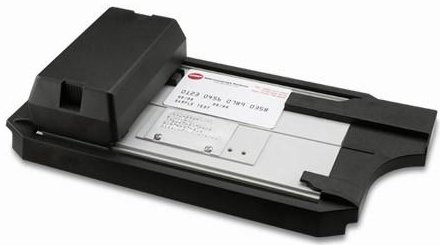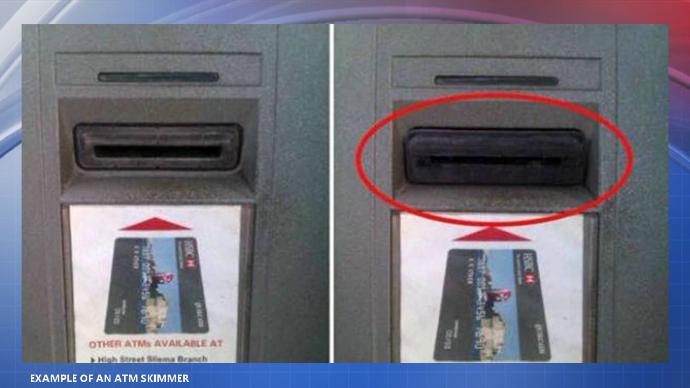Nowadays, having your credit card number stolen is one of the most annoying things that can happen (well, except for someone stealing an Amazon package from your front porch). Credit card fraud used to be something you heard about on the news, or maybe you had a friend who had their debit card number stolen and couldn’t get money out of the bank until everything was straightened out. Those days are long gone. Credit fraud is happening to everyone and the more cards you have, the higher the chance you’re eventually going to have to deal with it.
Let’s look at the evolution of credit card theft and what you can do today to protect yourself from the bad guys:
Back in the day, most credit card fraud was manual. Yup, going all the way back to when credit card information was taken down on carbon copy paper. If someone got that copy, they could call in and order things from the TV or a catalog with your card. You’d have no way to know until you received your statement in the mail a month or two later.

Of course, technology improved, and credit card authorizations became digital. All a thief had to do was find some way to get your number or the information from the magnetic strip of your card.
One way was to get a virus onto your computer that would track all your keystrokes. It’s not hard to filter out a set of numbers that looks like a credit card, expiration date, zip code and a three-digit code from the back of the card (just a reminder, don’t click on any email you don’t recognize and never supply your login and password because of an email you received). Another sneaky way for thieves to get your card info is by using a card skimmer. Skimming is still a practice in use today where a small device is placed into the credit card swiper, most often at automated machines like gas stations and ATMs. These devices held a memory of numbers until they were retrieved by the bad guys and used to make a copy of your card.

Do you think that since you now have a chip card, you’re safe? Not so, as there are already “shimmers,” a device that can copy the information from a chip card and deliver it wirelessly to the thieves, so they’re able to make a copy of your card and never have to go back to the device to get the info, meaning fewer chances of getting caught.
However, going through all the trouble to insert these devices and printing fake cards seems unnecessary anymore. All the hackers have to do is go after the companies where you used your card. There have been so many hacks in just the last year that it’s hard to remember them all. This article lists the worst data breaches in 2021, and we’re not even halfway through this year. Remember, it wasn’t all that long ago when the Starwood/Marriott hack possibly affected over 500 million hotel bookings.
You see, no matter how protective you are of your information, once you use a card, the number is out there. And if you bought something online and had it delivered, your card number is stored with your name, your address, phone number, email and whatever password you used for that website.
While it’s still a good idea to try and protect yourself and your financial information, you need to realize the question is no longer, “Will my information be stolen?” but, “What will I do WHEN my information is stolen?”
How to plan for credit card fraud
While I used to have this happen to me every few years, I’ve now had to deal with someone using my credit card at least one to two times a year. Here are some things I’ve supposedly purchased with my card in the past (which I definitely didn’t do. My fraudulent self is much more interesting than I am).
- Bought a three-day pass to the EDM Music Festival in Miami
- Purchased a $150 Academy.com gift card
- Ordered a $700 iPad from Apple.com
- Made multiple small-dollar purchases from Amazon.com
- Bought not one, but two sets of tickets to see the Orlando Magic
- Bought gasoline from two stations within five miles of my home
So what can you do to protect yourself?
Keep an eye on your accounts
I use Quicken, but there are a number of personal finance programs where you can download transactions to your computer. Take a look at them frequently and make sure there isn’t something there you don’t recognize. Please don’t be a person who just gets a bill and sends in a payment.
Let your bank contact you in case of suspected fraud
You may have to set up your account to allow your bank to call, text, or email you if there is alleged unusual activity on your account. I never liked this cause I thought I’d be getting a bunch of sales calls, but you can also opt out of receiving any other type of calls. I prefer getting texts because they come quicker than the other forms of communication, but emails are helpful if traveling overseas if you’re not using your local number. If the bank suspects something, they might just shut down your account until they hear from you anyway, so why not take care of it right away, whatever the case may be?
Report any strange charges immediately
If you notice an unknown charge on your account, alert the bank right away. The scammers were able to buy two sets of basketball tickets a few days apart because no one questioned the first one. If I didn’t notice the charges, who knows what else they would have tried to put on my card. The bank didn’t flag it as unusual because they stole a card I use quite often when we travel, so seeing a large charge from Ticketmaster wouldn’t seem that out of place.
Reporting the fake charges was really easy; I didn’t even have to talk to anyone. I want online and tagged which charges weren’t mine and signed that I was telling the truth. The charges were reversed in less than 48 hours, and I had a new card sent to my house within five days.
Use different passwords
I know this one is a major pain, but you need to do what you can to keep yourself safe. That includes using a different password for your online accounts. This way, the next time a big company is hacked, the hackers only have your password to that specific account and aren’t able to scan the web to see which other accounts you’ve used the same combination for. Honestly, most of the passwords you can store either in your browser, app or with a third-party program so you don’t need to type them all the time. You don’t have to remember what it is as long as you have an encrypted file somewhere where you keep all the logins listed (and you need to remember the password to that file). Please don’t use 123456 or any of these popular passwords.
Have protection against identity theft
Most times that large companies are hacked, they’ll say in the press release that they are going to provide free credit monitoring to all people who were affected. Sign up for it!!! It’s free and you’ll see it whenever someone tries to open a credit card in your name. It only takes a few minutes to set up an account. Why not take advantage of the benefit provided by the company that let someone steal your information from them.
Personally, we have additional coverage against identity theft through our homeowners’ insurance. It’s something to look into and is often included or can be added to a renters’ or condo insurance policy as well.
Final Thoughts
There really isn’t much you can do to totally protect your identity. You just need to remain vigilant, shield yourself where you can and have a plan for when something happens. Catching these things early is the easiest way to keep them from getting out of control and causing a bigger headache down the road.
Want to comment on this post? Great! Read this first to help ensure it gets approved.
Want to sponsor a post, write something for Your Mileage May Vary or put ads on our site? Click here for more info.
Like this post? Please share it! We have plenty more just like it and would love it if you decided to hang around and sign up to get emailed notifications of when we post.
Whether you’ve read our articles before or this is the first time you’re stopping by, we’re really glad you’re here and hope you come back to visit again!
This post first appeared on Your Mileage May Vary

3 comments
My personal favorite from someone who got one of my credit card numbers was that they paid their state taxes with the fraudulent card. What could possibly go wrong, LOL?
Enabling Multi-Factor authentication, deactivating contactless mode and using 1 time virtual cards for online payments has gone a long way in the fight versus credit card fraud.
Freezing your credit report at the 3 credit reporting agencies is free and will prevent scammers from borrowing money or opening accounts in your name.